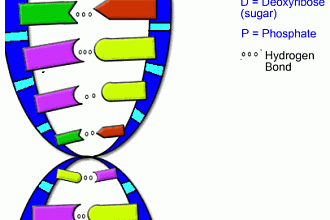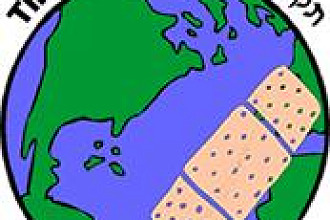If the European Central Bank knew in 2010 what an Israeli researcher knows now, it may have averted its recent serious financial problems. A team including Israeli researcher Dror Kenett, a PhD student at Tel Aviv University's School of Physics and Astronomy, has developed a new method to assess and predict the risk of interactions between foreign markets.
Aimed at policy-makers and regulators, not individual investors, the tool is built on complicated algorithms in the emerging physics subfield of complex systems.
When a butterfly flaps its wings in Peru and influences weather patterns in Japan, that's an example of a complex system.
Complex systems research can be applied to understand the human nervous system, climate change and how ant colonies are constructed. Recently, interdisciplinary scientists have been applying new approaches in physics to update the study of economics. Their results will help experts better understand market volatility and risks, especially in our global village, where economies of groups of countries can be very closely tied to one another.
And it's high time: It's been over a century since theories in finance and economics have gotten a fresh look. The current model was developed from more simplistic physics laws such as thermodynamics, equilibrium and closed-state dynamics.
Stabilizing real world markets
"We have been focusing on the basic academic research, but there are applications that can be made (in the real world)," says Kenett. "Our work can be turned into applications. Most of the research now has been how to stabilize markets, which is more for policy-makers and regulators, but in Israel we already consult and do research with the Israel Securities Authority."
Kenett and his colleagues, Prof. Eshel Ben-Jacob from Tel Aviv University and Matthias Raddent and Prof. Thomas Lux from the Kiel Institute in Germany, believe this new tool, if applied in the right way with real empirical data, could help avert a future global catastrophe.
In their study, the researchers took empirical data from the world's most powerful economies from 2000 to the end of 2010. They determined what the most lucrative stocks were in these countries and followed them over time. Their results were published recently in the scientific journal PLOS ONE.
Using a new technique called meta-correlation; they monitored, measured and compared stock market activity in Japan, Germany, China, the United States, the United Kingdom and India to see how changes in one market affect another.
In most cases, the researchers found very strong interdependence patterns between the markets of these major countries, which are to be expected. But they were surprised to discover that Japan's market ties jump in an alternating pattern between Western and Eastern countries.
Countries already asking for advice
The new tool, says Kenett, gives old financial models a really modern update. Financial planners in individual countries can use it to predict how ties to other foreign markets could play out. "It has become both vital and critical to understand the relationships and dependencies among the world's markets," he says.
For instance, certain safety nets could be put in place to avert crises, Kenett explains. These measures could protect either individual nations or clusters of countries when their economies are connected, as in the case of the European Union and its 27 member states.
"Germany is so invested in Greece that they don't have an option other than to bail Greece out," says Kenett. But if Germany had been able to see the writing on the wall earlier it could have reduced its investments in Greece before there was no way out.
Now that financial ministries from a number of countries are already interested in this tool, Kenett will be developing it to study beyond the six most powerful nations. "With such high frequency data, you can have almost real-time or short-time predictions on how economic information flows throughout the world," says Kenett, who is going to do post-doctoral research in Boston.
By the way, Kenett is an apple that hasn't fallen far from the financial tree: His grandfather, the late Avshalom Aby Kenett, worked with the Israel Ministry of Foreign Affairs as an adviser and minister, and was one of the key people to open Israel's doors to the greater European Market in the 1960s and 1970s.
Originally from here
Posted on Shalom Adventure by: Brenda Miller

























